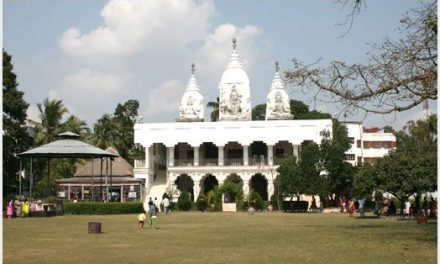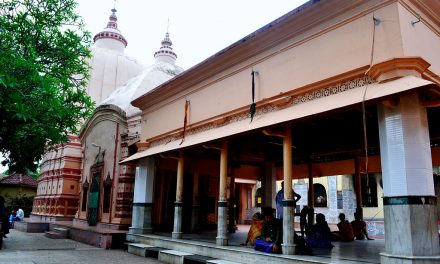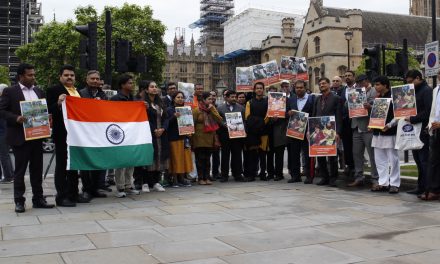West Bengal Government has started many Public welfare projects to uplift its people’s economic and social conditions. Kanyashree Project is one such project. The project was introduced for girls below 18 years and above who are compelled to detach themselves from education and are victimised by the discriminatory practice of untimely marriage.
Under the ‘Prohibition of Child Marriage Act, 2006(PCMA)’, girls under 18 and boys under 21 are ineligible to be married. Still, it is a common practice to violate this in West Bengal. Child marriage is an age-old discriminatory practice that affects girls more than boys. Child marriage and school dropouts go hand in hand.
According to DLHS-3, 2007-2008, our state, West Bengal, ranked 5th highest in India when it revealed its official child marriage statistics with 54.7%. Girls are much more affected than boys with child marriages. It is a relabel of sexual abuse of minor girls that negatively impact their health and their children. Not only that, they go under disempowerment, ill-breeding and economic disability which enhance child labour who are truly insecure. This miserable scenario of our society is seen severely in rural areas than it reflects in non-slum areas in Kolkata.
Benefits of Kanyashree Project
This project is helping girls be educated and healthy, helping them be a vital part of our society. The best part of the project is that applicants are receiving assistance directly in their bank accounts, thus removing the chance of corruption. Girl’s or women’s education will enrich them to be skilled which will help them to be dependent in future. The expected age of girl marriages will uproot the practice of child marriage in West Bengal.
Decorations of Kanyashree Project
(1)’Kanyashree Project’ has been furnished into three steps like K1(from 13 years up to not completion of 18 years, underclasses VIII to XII in a government recognised regular or equivalent open school or equivalent vocational or technical training course)
(2) K2(after completion of 18 years up to 19 years, born on or after 01/04/1995 and completing of 18 years on or after 01/04/2013, enrolled in government recognised regular or open school or college or pursuing vocational or technical training or sports activity or is an inhabitant of West Bengal or of any home that is registered under the Juvenile Justice, Care and Protection of Children Act, 2000 and must be unmarried)
Any one of the two categories(K1 or K2) is applicable for those girls who belong to families whose net annual income does not exceed Rs. 1,20,000(One lakh and twenty thousand only). The girls who have lost their parents, are physically disabled(40%) or are the inhabitants of J.J.’s home do not have any compulsion to fulfil this bar of annual income.
(3) K3(applicable only for existing university girls or women students, she may be married or unmarried, has not to prove her annual family income but has to obtain at least 45% marks in undergraduate level and open or distance university students are not eligible for this project.)
Fundings
(1) for K1: Initially, the Government of West Bengal paid its girls students annually of Rs. 500. Gradually it was incremented by Rs. 250 with a sum of Rs. 750 annually, and at present, it is further hiked by Rs. 250 with a sum of Rs. 1,000 annually.
(2) for K2:- In this category, girls students benefit from a sum of Rs. 25,000(Twenty-five thousand only) for one-time.
(3) for K3: University girls or women students benefit from three sub-categories in this category. Those are:- (a) science students: Rs. 2,500 per month, (b) arts students: Rs. 2,000 per month and (c) commerce students: Rs. 2,000 per month.
This project was introduced in West Bengal, India, on 8th March 2013 by the honourable Chief Minister, Mamata Banerjee. The U.N. Department of International Development and UNICEF has appreciated and rewarded the project. The Honourable Chief Minister, Smt Mamata Banerjee, received the prestigious U.N.s Public Service Award 2017 in a grandeur ceremony in Hague in Netherland on behalf of the West Bengal Government. After receiving the award, she dedicated this to her fellow citizens.
More details can be found on the government website below.
https://www.wbkanyashree.gov.in/kp_4.0/index.php
Kanyashree Day: West Bengal government declared 14th August as the Kanyashree Day.
Kanyashree University: The state government of West Bengal had the initiative to establish Kanyashree University, particularly in Nadia district and Kanyashree colleges throughout the state. In early January 2019, honourable Chief Minister Smt Mamata Banerjee put the first Kanyashree University at Krishnanagar in Nadia district.
It is admirable that the West Bengal government, with its limited ability still able to create something so forward-thinking that it is helping the needy. It is truly a noble initiative and every other state of India should follow.
Image courtesy: akshayapatra
















